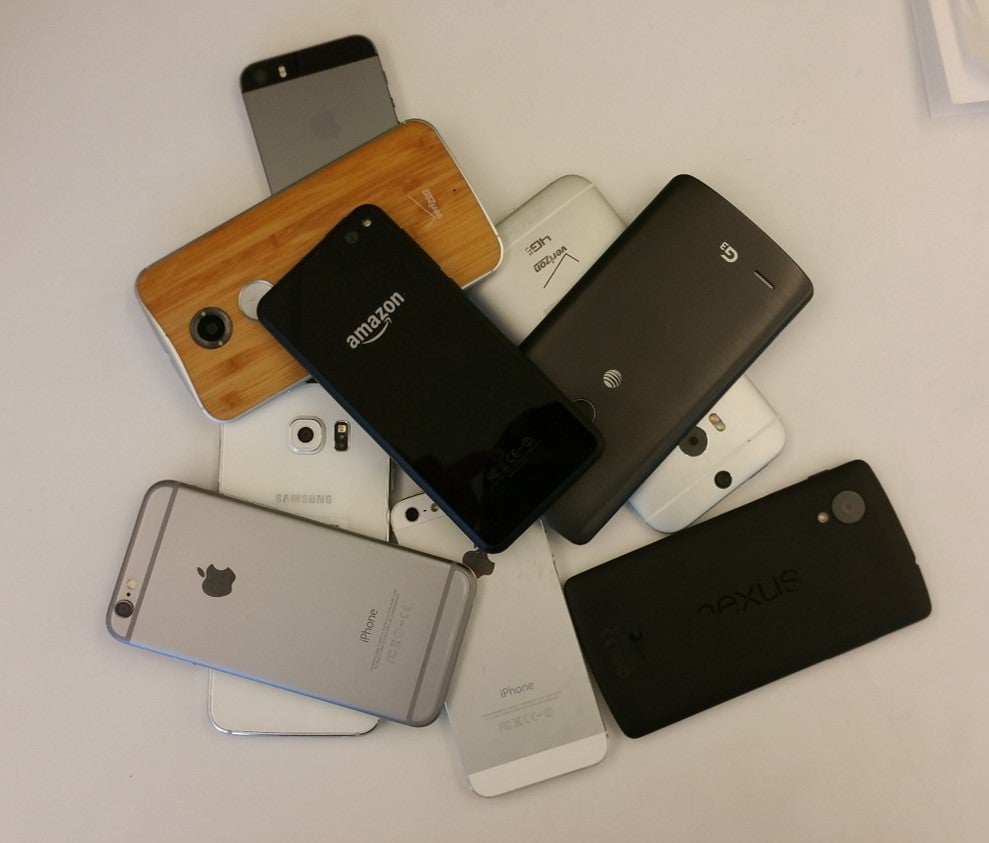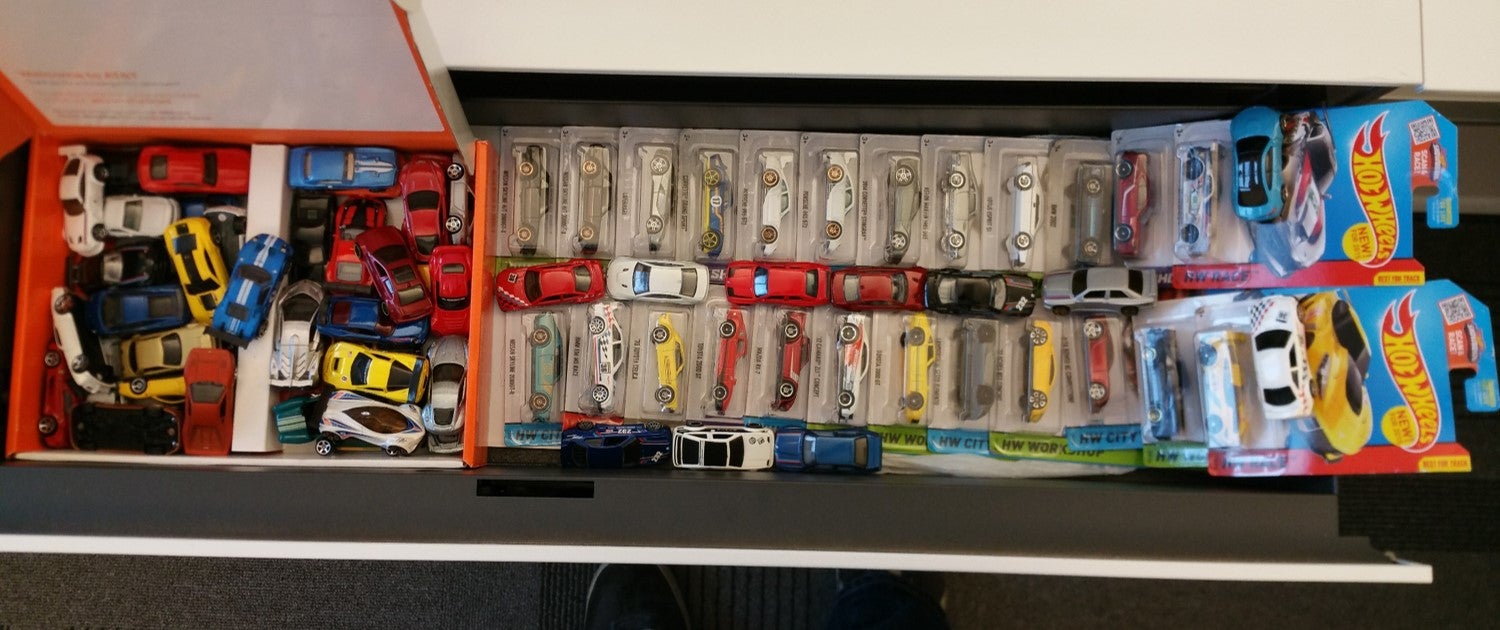 "BLCKSTRM" (BLCKSTRM)
"BLCKSTRM" (BLCKSTRM)
05/28/2015 at 12:13 ē Filed to: Connectedcars, IoT, Apple, smartcars, CarPlay, iOS
 8
8
 3
3
 "BLCKSTRM" (BLCKSTRM)
"BLCKSTRM" (BLCKSTRM)
05/28/2015 at 12:13 ē Filed to: Connectedcars, IoT, Apple, smartcars, CarPlay, iOS |  8 8
|  3 3 |
The IoT (Internet of Things), connected cars, autonomous driving, and such are all the rage these days. And as the topic du jour, thereís a lot of uninformed analysis and speculation being thrown around - even by big banking analysts who youíd normally expect to know what theyíre talking about.
So there is a big need to set the record straight.
But before I drag some big names in banking and electronics through the mud, I should probably explain why Iím qualified to say theyíre not qualified. Which brings me back to my day job.
Iím a pretty humble guy most of the time. A few weeks ago I lapped Buttonwillow (a roughly 2 minute track) almost 20 seconds slower than my buddy who was competing in Spec 3 (same car). So, Iím not fast. At all. And there are definitely people out there who are smarter than me. But you want to talk about cars and connectivity and electronics/smartphones/wearables? I feel like Iím decently qualified in that area.
Iím the competitive intelligence lead in the corporate strategy team at a major electronics manufacturer. You have a roughly 50% chance of having a phone made by my company in your pocket.

Phone dump - everything out of my backpack that I DIDNíT take on my last business trip.
Before this gig, I was in an internal consulting group at a major automaker. I worked across the company - in R&D (battery, alt fuel, connectivity, etc), marketing, product planning, strategy.
I still do automotive consulting work, as well as some automotive work at my present company.
The Autoextremist is fond of saying that you canít ever understand the vast complexity of the auto industry if youíve never been part of it. Iíve been an enthusiast for most of my life, and it wasnít until I got my job in the industry that I realized how true that statement is.
This is a key point Iíll return to. Iím not trying to make any fellow Jalops feel bad, but if youíve never been inside it is incredibly difficult to really grasp the complexity, risk aversion, scale, and timing of the industry. Which also means a Harvard education and investment banking background donít help, either.

Doing your own work DOES help, however - teaches you how things get engineered, how things work, and why itís not worth saving $0.05 on a slightly cheaper part sometimes. Pic from my head gasket job...
So all of this is just a long way of saying I do have
some
idea what Iím talking about with both cars and this new connectivity business, and these Wall Street types have no more idea than your kindergartner does of how to do the valve adjustment on the solid lifters on the S54 in your swapped E30 race car. (yes, even
your
kindergartner, who knows the difference between a crankshaft and a camshaft).

Speaking of kindergartners, this is how I feed the addiction when Iím at the day job...
If youíre reading this, you probably read
!!!error: Indecipherable SUB-paragraph formatting!!!
from a few days ago, rebutting an article claiming autonomous cars will kill 9 billion jobs and usher in the apocalypse.
You should expect a lot more of this type of analysis (the original, not the Jalopnik story. Ballaban could have gone after them even more and it still wouldnít have been everything they deserve). It sells papers (well, not really papers, but you get the idea). If only they knew headlines donít sell papes (yes, thatís right - Newsies sell papes).
You probably missed it, but days after the Apple Car rumor first hit, both Bank of America and Morgan Stanley analysts published papers on Appleís prospects in the car business. They were on opposite sides of the issue, but both MILES from having a clue.
The Bank of America analysts cited four reasons Apple wouldnít build a car (I have the research note, but canít find it online). Some of them were completely idiotic, including ďthey could look elsewhere for growth.Ē So these brilliant analysts have concluded that Tim Cook does not in fact have a gun to his head, forcing him to enter the auto market, and that because they can look elsewhere they will look elsewhere.
But other reasons they cited sound downright convincing. The one Iím referring to in particular said something along the lines of, ďApple uses contract manufacturing rather than manufacturing themselves [i.e. Foxconn], and since that doesnít exist for auto manufacturing, they wonít do it.Ē
Which totally sounds reasonable - unless youíve heard of Magna or AM General (you know, those guys who built Dougís Hummer. Yep, they build stuff for other people). In which case these guys look like theyíve got such weak homework skills you wonder how they got past second grade.
In fact, they were SO ignorant they didnít read the !!!error: Indecipherable SUB-paragraph formatting!!! the week before, which cited Apple talks with automotive contract manufacturer Magna as evidence Apple was getting into the business.
Then on the other side you have !!!error: Indecipherable SUB-paragraph formatting!!! , who said OF COURSE Apple is getting into the car business. In just 8 short years Apple already has like 25% share of the $400 million global smartphone market. And if Apple could likewise get 25% of the $1.6 TRILLION global automotive market, that would be as much as the WHOLE smartphone market. So thatís a total no-brainer, right?
Right.
Now, I havenít chased this number down exactly, but Iím pretty sure the last time any automaker had 25% global market share their cars were also still legitimately competing with horses as a valid transportation option, even in New York and London. (I will admit that after both German and Japanese manufacturing were destroyed during WWII, GM may have been close. But Morgan Stanleyís note didnít mention WWIII. Of course, even if it did, the way OEMs have diversified their manufacturing means even that strategy wouldnít work so well these days).
This is fanciful to the degree of idiocy.
Now, you may be saying the same thing they did when they threw out this crazy number. They said the auto industry is ripe for a shakeup. Theyíre old. They donít innovate.
And here Iíll revisit the Autoextremistís point. This thinking shows an utter ignorance of the industry at such a base level itís laughable.
Iím going to use the iPhone as an example. We got the iPhone in 2007. Depending on where you live, we also got the new E90 BMW 3-Series around the same time (2005 in Europe, 2006 in the US).
Weíve had 7 new iPhones since then, and will get an 8th later this year.
Now class, how many new 3-Series did we get in the same time period? One, in 2011. So Apple made 5 new iPhones in the same time BMW come out with one new 3-Series.
Of a necessity, automotive product cycles are much longer than that of consumer electronics. You already knew that, so Iím not going to get into the many reasons for it (engineering, validation, liability, manufacturing, etc), but itís not one of those things that needs to change. It is an unavoidable reality Apple will have to adopt.
So calling the automakers out for a lack of innovation because YOU donít understand that the auto industry has a different product cycle from the electronics industry is easy and can make you sound smart, but is actually just ignorant. (Hmm, I keep using that ďignorantĒ word).
It also means (like our Bank of America friends) that theyíre not paying any attention to the industry - theyíre just jumping in on this topic because they heard the word ďApple.Ē They obviously havenít paid any attention to anything the actual automakers have been doing lately, which is quite a lot.
But I hear some of you saying Apple really IS innovative. And Iíll tell you why - even if you really believe that - it doesnít matter.
In the electronics industry patents provide protection for as many as 16-17 product cycles (since, you know, patents last 17 years and at best take a year or two to make it into consumersí hands). At best, patents only provide protection for 2-3 automotive product cycles. Makes it much harder to maintain your competitive advantage in the long run, no?
And if you look at how evenly distributed global automotive market share is, it really rings true.
And what about all the things Apple has no clue about? What does Apple know about lightweight materials? Engineering engines, motors, safety structures? Ride and handling, NVH, aerodynamics? On balance, they donít really have that much on the positive side of the balance sheet in this car space.
But itís what they do have that matters. There are some subtleties in the language used here that are very important.
If youíre a geek, you may remember in June 2013 at their World Wide Developerís Conference (WWDC) Apple announced ďiOS in the car.Ē They went away, and I assume worked on it for the next whole year. But they never announced anything. Fast forward to June 2014 and Apple announced CarPlay at WWDC 2014.
Iíll let that just sink in for a minute.
This was a huge failure by Apple. But even more astoundingly, it was completely missed by the media.
The key here is that Apple thought they could get what they wanted from the automakers, but they were completely unprepared to have every single automaker turn them down because they were completely ignorant of the industryís liability and attendant risk aversion behavior and attitude toward driver distraction.
What do you think ďiOS in the CarĒ means? I think itís fair to assume that means iOS, running in the car. Running the whole infotainment system (maybe more). But at the very least it meant Appleís software running the show on the automakerís infotainment system.
So whatís the big deal?
The deal is that CarPlay is Apple backtracking on that grand plan. And pretending that was the plan all along.
What is CarPlay? CarPlay plays your iPhoneís display as an app on top of the automakerís infotainment system.
Some of you may wonder why the implementation matters, but others may see where this is going.
It wasnít all about liability. It was really about control. Liability is a huge factor, but as cars get smarter and start driving themselves, liability goes down. The real opportunity as cars start driving themselves is that people can start doing other things with their newfound free time while they ride instead of drive. (This also is why longtime holdouts like BMW are finally putting touchscreens in their cars. Once the car can drive itself, touchscreen distraction is no longer an issue).
If Apple is in control, Apple can sell you content from iTunes to watch or listen to. Apple gets the HBO Go delivery fee. Etc, etc.
But Apple didnít get any takers. Automakers declined to put iOS in the car because they want to capture the value of that content themselves rather than just handing it over to Apple.
And once it became clear to Apple that they were effectively going to get sidelined (if not completely shut out of the car eventually), they decided to pull a Tesla and enter the market themselves.
And how will they do that? What do they know about actually building a car? Weíve already established that IP (patents - Intellectual Property) doesnít last long in automotive terms. Combine that with !!!error: Indecipherable SUB-paragraph formatting!!! and reverse engineering, and you get going in no time.
Just ask Tesla...
 My 2 Cents
> BLCKSTRM
My 2 Cents
> BLCKSTRM
03/09/2016 at 14:40 |
|
REAlly?
Nobody has commented on this excellent article?
REally?
Well...i appreciate your efforts BLKSTRM. I appreciate you!
: )
 BLCKSTRM
> My 2 Cents
BLCKSTRM
> My 2 Cents
03/09/2016 at 14:51 |
|
Yeah, it just kind of launched out into the ether. I thought it would have made it onto the front page, but thereís some stiff competition!
 My 2 Cents
> BLCKSTRM
My 2 Cents
> BLCKSTRM
03/09/2016 at 15:07 |
|
Maybe if you had a click bait title and 12 gifs and used less....words.
Seems to be the recipe these days.
I liked your article. Gave me something to think about. Thank you.